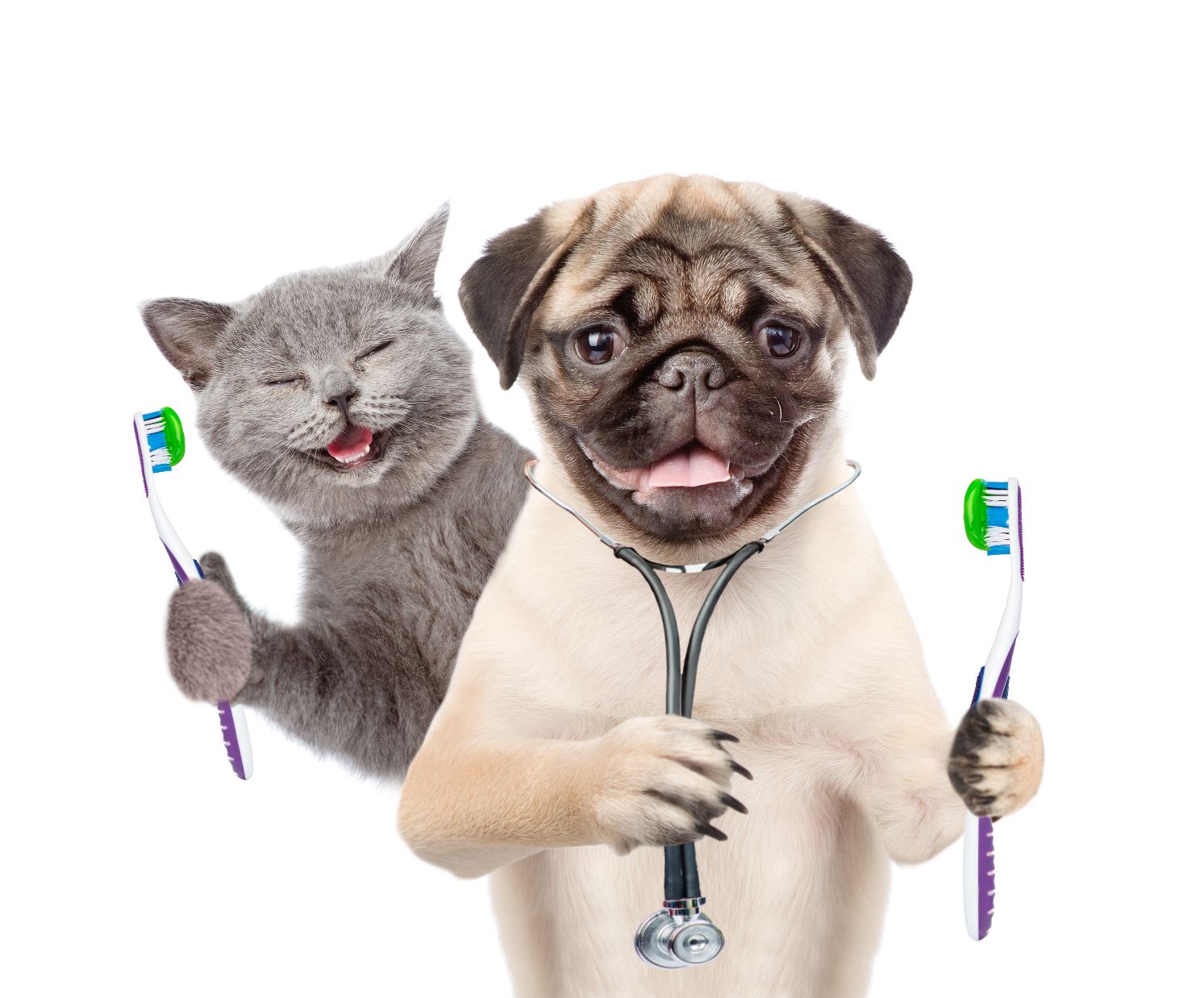
Why Is Pet Dental Care Essential?
February 01, 2022This is Pet Dental Health Month - an observance that is crucial to maintaining your pet’s oral care all year round. Pets, like humans, can suffer from a wide variety of dental problems that can ultimately harm their overall health. That’s why it’s so important to brush your pet’s teeth regularly and provide them with appropriate chew toys and treats. In this blog post, we’ll discuss the importance of pet dental health and give some tips for keeping your furry friend’s smile healthy and sparkling!
Oral health is an essential part of the overall general health of your pet. Did you know that more than 85% of dogs and cats have some degree of periodontal disease by the age of 3 years old? That’s a staggering number! And that is why pet oral care is so essential!

February is Pet Dental Health Month
February is Pet Dental Health Month. If your pet has bad breath, this is not something you should take lightly. When was the last time your pet had their teeth or gums checked? When you visit your veterinarian, one of the first things they will examine is their mouth.
The most common dental problem seen in cats and dogs is periodontal disease. Periodontal disease is an infection and associated inflammation of the periodontium (the tissues surrounding the tooth). Periodontal diseases begin with gingivitis, and if left untreated, the infection can spread deeper into the tooth socket, destroying the bone. Ultimately, the tooth becomes loose and may fall out over time.

Signs Your Pet May Be Suffering From Periodontal Disease
The first sign of periodontal disease is bad breath, yellow tartar buildup on the teeth, and red and swollen gums!
Other signs would be:
- Bleeding of the gums or other tissues in the mouth
- Loose and or discolored teeth
- Swellings on/around the jaw
- Drooling or dropping food from the mouth; changing of chewing habits
- Loss of appetite or weight loss
Oral care is essential for your pet’s overall health
A pet’s dental health is vital to their overall health. Often poor dental care can lead to other problems, and a sick pet is an unhappy pet.
Spikes Your Pet’s Immune System
When your pet’s teeth and gums are in bad shape, it will cause their immune system to go haywire, and they will struggle to battle off any infections that may occur.
Increased Heart Disease Risk
Your pet’s heart and liver are especially at risk of developing inflammation caused by dental disease.
Endocarditis, a disease of the heart valves, is more prevalent among dogs with dental problems because of poor dental health. The frequency of endocarditis in pets with dental disease is approximately six times higher than in pets without dental issues.
Complicates Diabetes
Pets with diabetes are more likely to get dental disease, making it harder to manage diabetes. Periodontal disease exacerbated by increased inflammation and infection associated with diabetes makes this issue worse. If you have a diabetic pet, you should pay extra attention to their teeth.
Painful
While you may occasionally notice that your pet is in discomfort, the pain caused by poor teeth is generally more difficult to detect. If your dog or cat is hungry, they will do whatever it takes to eat their food, even if this means eating with a hurting mouth. This can result in your pet “inhaling” their meal.
Pets with dental disease also drool, have a decreased appetite, or their mouth may appear swollen or even bleed.
Whether or not your pet shows it, dental disease can be excruciating, and living with it can severely decrease their quality of life.
Any oral discomfort will be causing our pets a lot of stress. By getting your pet checked out and fixing any problems with their teeth, you are making them much happier and improving their quality of life.
How to Care for Your Pet’s Oral Health

It’s essential to have your dog examined by your veterinarian. Most dental problems start below the gum line, where you can’t see them. Thorough dental cleaning and examination are completed under anesthesia because the most dental disease occurs where you can’t see them. Your veterinarian may also take x-rays of the entire mouth.
Other things that you can do at home to help prevent dental disease are:
- Daily brushing with a pet-specific toothpaste
- Chlorhexidine Oral Rinse
- Specific chews/toys designed to help decrease tartar buildup
- A particular diet recommended by your veterinarian
Nearly 80% of cats and dogs have dental disease by the time they are three years old, so it’s important to make oral care a regular part of your pet’s health routine. Dental disease can cause pain, bad breath, and even tooth loss, so it’s essential to keep your pet’s teeth clean and healthy. There are many ways to do this, from scheduling regular dental checkups to brushing your pet’s teeth at home. When was the last time you had your pet’s teeth cleaned and checked for dental disease? Make sure to schedule their next appointment today.
Salmon oil for dogs boost immunity against diseases. It is a really great supplement to be included in your pet’s diet. The question among many pet owners is “does salmon oil make dogs smell?” Surely, they don’t want to have their dogs a bad (fishy) breath. Your dog’s breath might smell like fish after eating salmon oil supplements, but you can get rid of the fishy scent by brushing his teeth.

